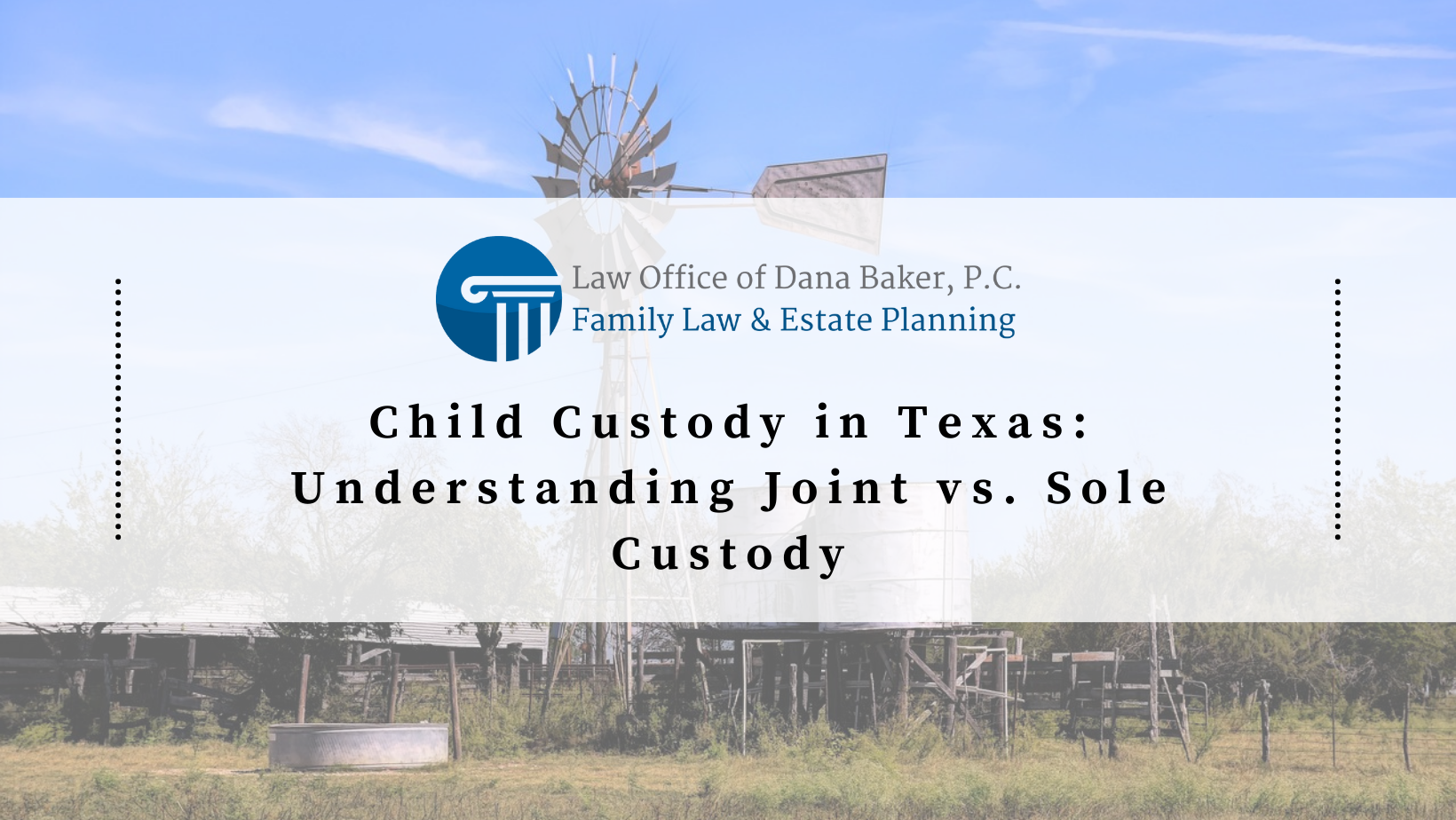Schedule Your Free 15-Minute Phone Consultation
(979) 865-0000

When couples with children decide to part ways, determining child custody becomes one of the most significant and often contentious issues they face. In Texas, the legal term for child custody is “conservatorship.” Understanding how Texas law views conservatorship and the difference between joint and sole custody is crucial for parents navigating this process.
In Texas, rather than using the terms “custody” or “primary custody,” the law uses the terms “conservatorship” and “possession and access.” These terms refer to the legal rights, duties, privileges, and powers parents have concerning their children.
When parents are named as joint managing conservators, it means that both parents share rights and duties concerning their child. JMC doesn’t necessarily mean equal physical time with the child. One parent might still have more time with the child than the other. However, decisions about the child’s health, education, and welfare are typically shared between parents.
Texas courts generally presume that appointing parents as joint managing conservators is in the child’s best interest, unless evidence suggests otherwise.
If one parent is granted sole managing conservatorship, they hold the primary rights and responsibilities for the child. This can include decisions about the child’s medical treatments, education, and moral and religious upbringing.
Courts might assign SMC when:
This refers to when and how each parent spends time with the child. While conservatorship concerns decision-making rights, possession and access pertain to physical custody. Even if one parent is given SMC, the other parent, termed the “possessory conservator,” typically has the right to spend time with the child, unless there’s a compelling reason (like a risk to the child) to prevent this.
Above all, Texas courts prioritize the best interests of the child. Factors considered include:
Emotional and physical needs of the child now and in the future.
Child custody battles can be emotional and complex. For parents in Texas, understanding the state’s perspective on conservatorship can offer clarity during challenging times. Always consult with a family law attorney who can provide guidance tailored to your specific situation